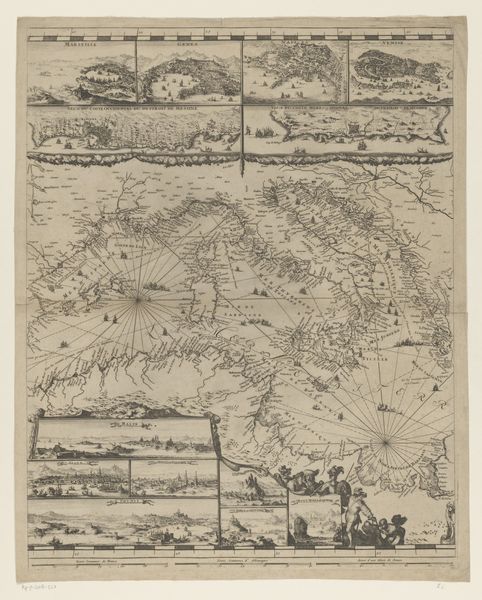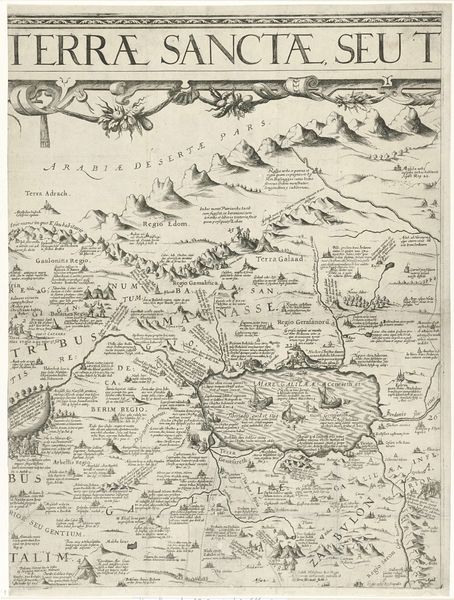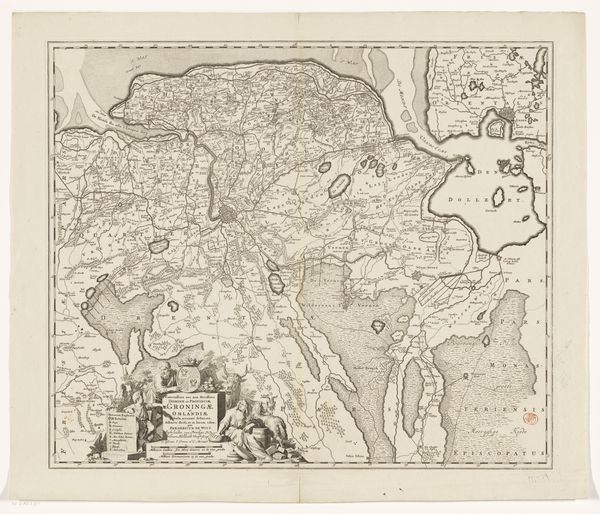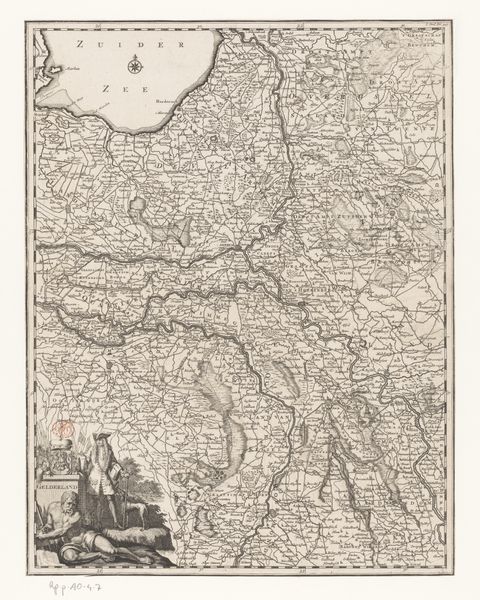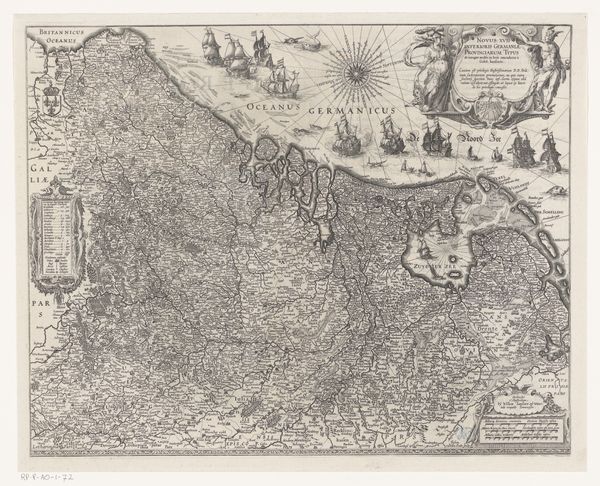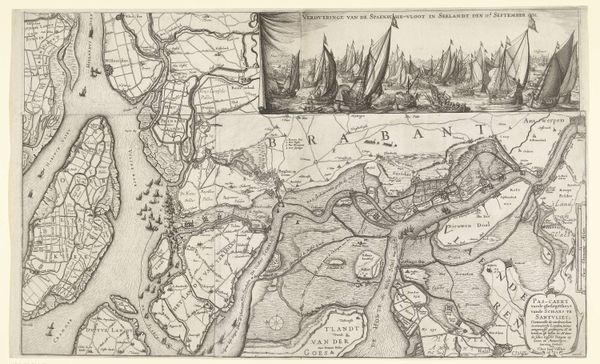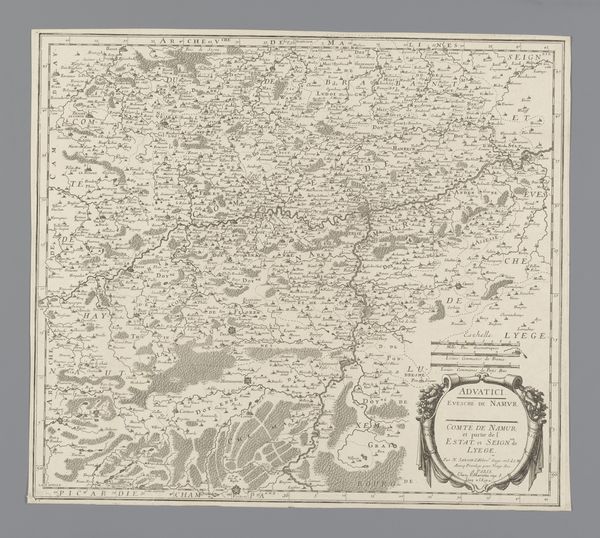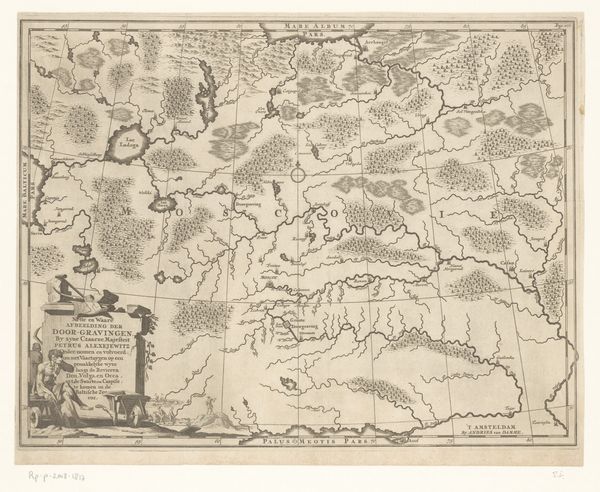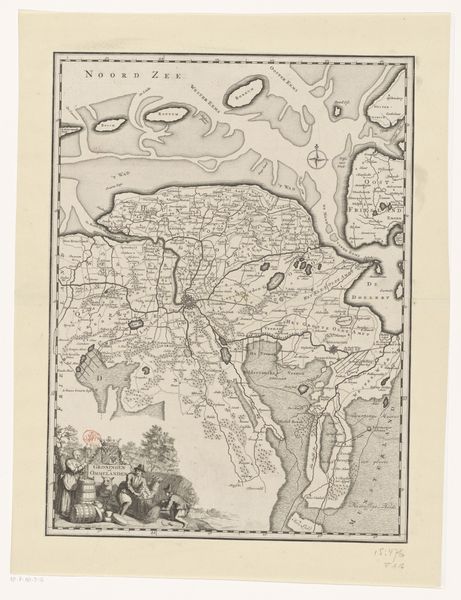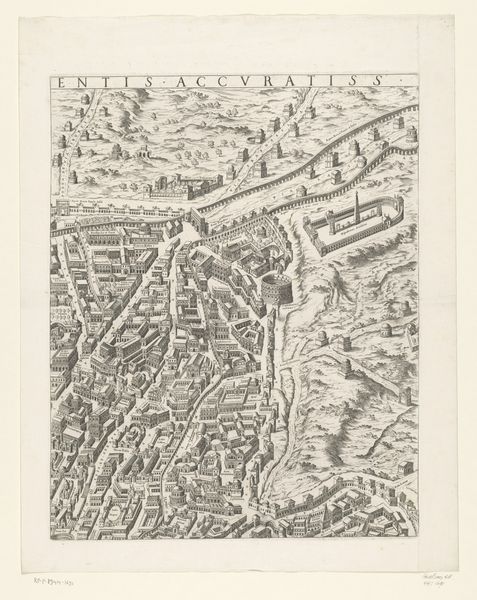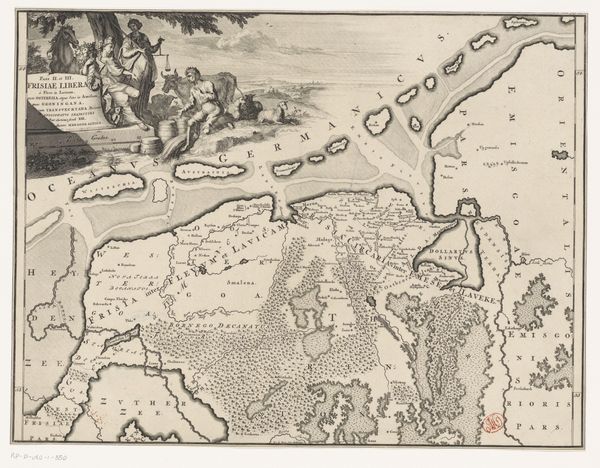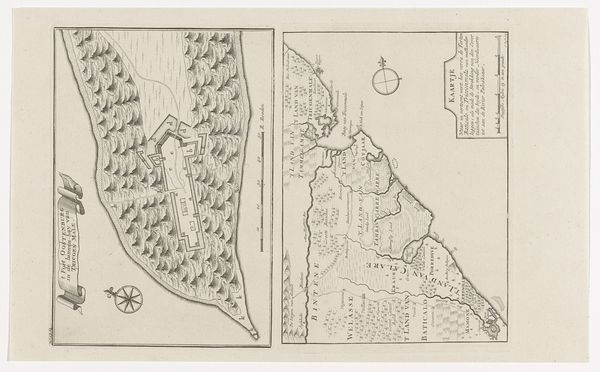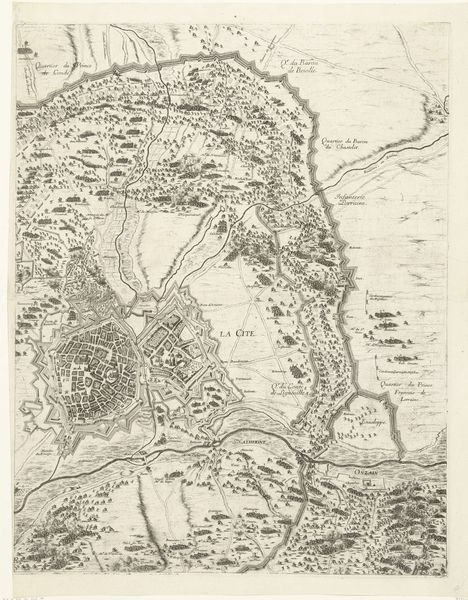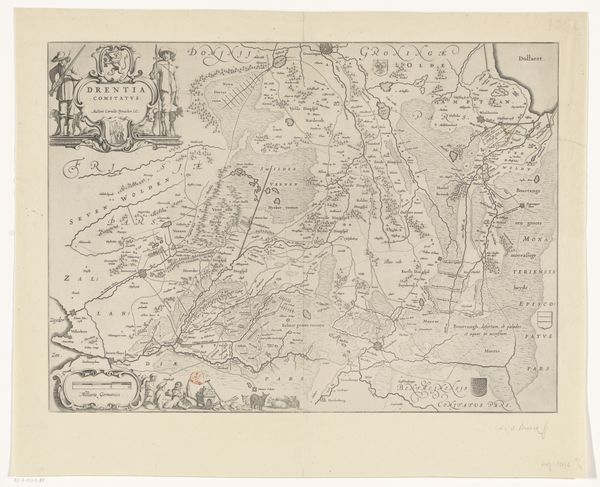
Ontzet van Arras, belegerd door de Spanjaarden (middelste rij, plaat 2), 1654 1655
0:00
0:00
nicolascochin
Rijksmuseum
drawing, print, ink, engraving
#
drawing
#
baroque
# print
#
old engraving style
#
hand drawn type
#
ink
#
cityscape
#
engraving
Dimensions: height 588 mm, width 457 mm
Copyright: Rijks Museum: Open Domain
Nicolas Cochin created this print in 1654, depicting the relief of Arras during the Spanish siege. It's an etching, a printmaking process where lines are incised into a metal plate, which then holds ink to be transferred onto paper. The material of the print, paper, allows for intricate detail and the reproduction of this map on a mass scale. This speaks to the evolving relationship between cartography, military strategy, and perhaps even early forms of propaganda. The crisp lines, achieved through the etching process, allowed for precise representation of the siege lines, troop placements, and fortifications. Consider the labor involved; the meticulous work of the etcher contrasts sharply with the violent labor of warfare depicted within the image itself. The print makes war into a commodity, something to be studied, consumed, and perhaps even celebrated. Ultimately, Cochin's print allows us to consider the relationship between craftsmanship, conflict, and the evolving technologies of information dissemination in the 17th century.
Comments
No comments
Be the first to comment and join the conversation on the ultimate creative platform.
